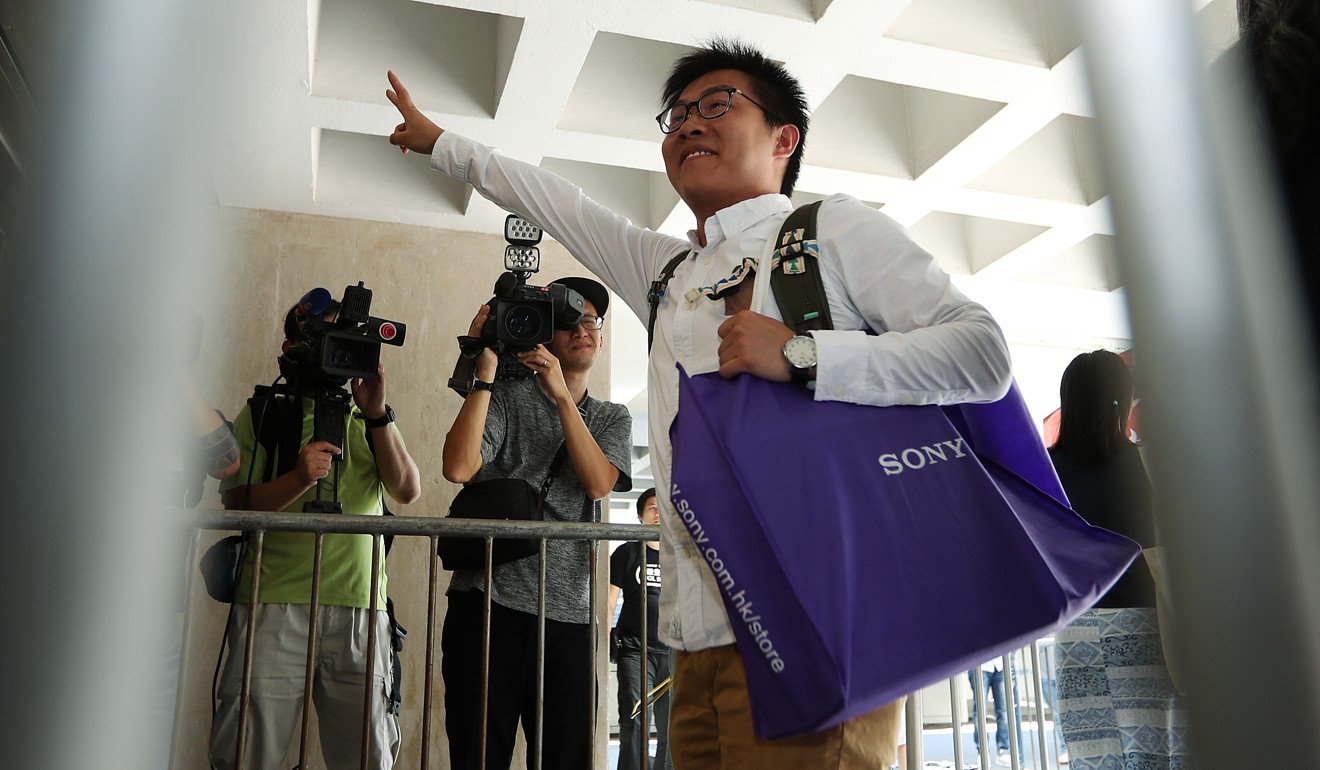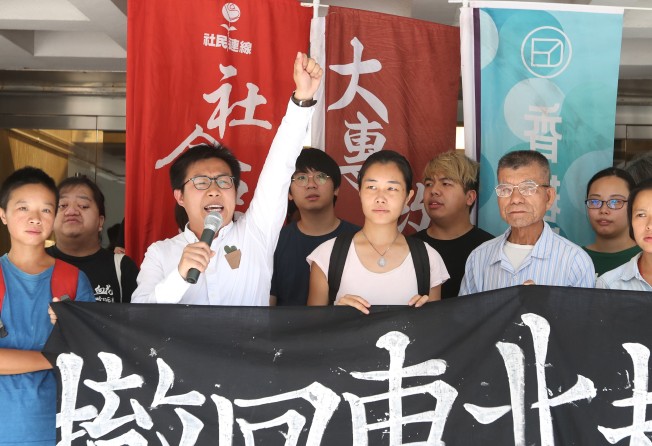
Jail ‘the only option’ for 13 protesters who stormed Hong Kong’s Legislative Council, says Court of Appeal judgment
Court of Appeal judges unanimously found trial magistrate had erred in failing to recognise level of violence called for greater weight in deterrence during sentencing

Jail was “plainly the only option” for 13 protesters who charged at Hong Kong’s legislature during a debate in 2014, according to a court explanation on Monday, as the unprecedented violence of their assembly went against the spirit of civil disobedience.
The 56-page judgment, accompanied by a 76-page English translation, handed down by the Court of Appeal also shed light on how courts should approach civil disobedience as a motive behind participation in unlawful assemblies in future cases.
The three judges had granted a government bid last month to beef up sentences and replaced the protesters’ community service orders with jail terms ranging from eight to 13 months.
The enhanced sentences were closely followed by a second successful government review to replace the non-custodial sentences of Demosisto leaders Joshua Wong Chi-fung and Nathan Law Kwun-chung, plus former student union chief Alex Chow Yong-kang, with six to eight months’ jail.
The two cases sparked international debate on the independence of the city’s courts and reignited demands for an independent director of public prosecutions.

The court heard the 13 protesters in the present case were convicted of unlawful assembly, punishable by three years’ imprisonment, for charging at the Legco complex in a violent manner with the intent to forcibly enter the building on June 13, 2014 while lawmakers were debating a controversial government development project in the northeast New Territories.
The judges acknowledged the protest was not the most serious case of unlawful assembly.
But they unanimously found that trial magistrate Jason Wan Siu-ming had erred in failing to recognise that charging at Legco with violence in such an unprecedented scale was an aggravating factor that should call for greater weight in deterrence during sentencing.
“Immediate imprisonment is plainly the only sentencing option,” said the judgment from Court of Appeal vice-president Wally Yeung Chun-kuen and Justices Jeremy Poon Shiu-chor and Derek Pang Wai-cheong.
The judges further explained that the 13 protesters cannot use civil disobedience as a defence because it must necessarily involve breaking the law, which contravenes Article 42 of the Basic Law that requires all Hong Kong citizens to abide by the laws.
They also cannot use civil disobedience as a mitigating factor as the judges found their conduct inconsistent with its spirit.
Citing an English authoritative case from Lord Hoffmann, the judges said offenders motivated by civil disobedience to break the law must still act with restraint and accept the penalty to vouch the sincerity of his belief. Yet the 13 brought serious disruption damaging public order and safety with violence in total disregard of the law, and showed no remorse for their unlawful conduct.
The judges further noted that the 13 protesters’ behaviour harmed the legislature’s integrity as the “symbol of public opinion” that draws different camps from the pluralistic community to express their opinions. “In sentencing those offenders, the court must safeguard the integrity of the Legco,” the judgment continued.
But localist lawmaker Eddie Chu Hoi-dick disagreed. “The integrity of Legco was undermined mainly not by the protest outside, but by that it could not represent the popular will of its people,” he said.
Benny Tai Yiu-ting, one of the architects of the 79-day Occupy protests anchored on civil disobedience that same year, said the judgment was an improvement compared with that of the three student leaders as the judges endorsed the concept of civil disobedience, quoting from Lord Hoffmann.
Still he questioned whether the protesters had caused “excessive damage or inconvenience” and if excessive violence had been used.
Tai also disagreed that offenders who committed civil disobedience had to plead guilty, adding that protesters had agreed with the prosecutors’ brief facts of the case.
The 13 have until Tuesday evening to lodge their appeals.
They are Leung Hiu-yeung, Lau Kwok-leung, Leung Wing-lai, Ivan Lam Long-yin, Chu Wai-chung, Ho Kit-wang, Wong Kan-yuen, Kole Chow Koot-yin, Yim Man-wa, Billy Chiu Hin-chung, Kwok Yiu-cheong, Chan Pak-shan and Raphael Wong Ho-ming, vice-chairman of the League of Social Democrats.